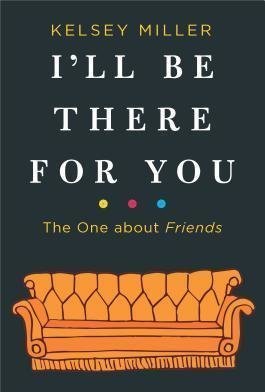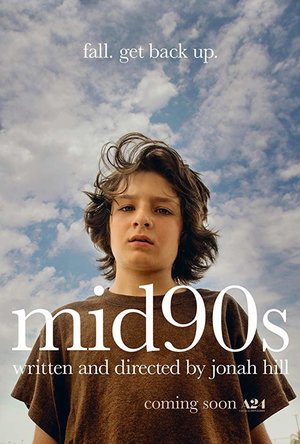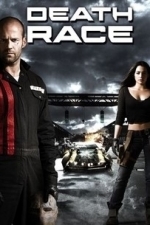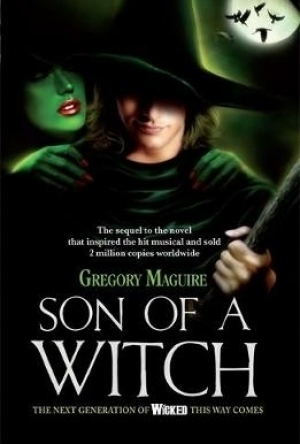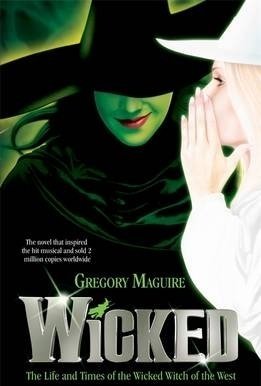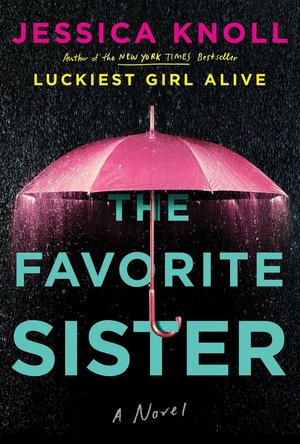Mark @ Carstairs Considers (2482 KP) rated I'll Be There for You: The One about Friends in Books
Oct 16, 2019
Author Kelsey Miller starts out by talking about her own connection to the show, and at various times in the book she talks about how she gained insight into the show (and vice versa) while talking to her real-life friends about it. As I said, the book is well-researched, but that is part of the problem – it has too much research, rehashing stories we can find elsewhere with little new insights from the cast and crew. I did find her commentary on a few episodes and arcs to be interesting. I had already thought of some of her comments myself, and the rest make perfect sense to me. My biggest issue with the book is the way she works modern social issues into a look at a comedy from 25 years ago. Now, I’m not saying that the issues on the show aren’t worth talking about. This is the only part of the book where she did her any original research, reaching out to people to get reactions to the show’s handing of diversity, etc. However, her experts all seem to be of the opinion that it would be nice if the show had done a better job, but that was TV in the day, and it is a funny comedy that wasn’t trying to push an agenda. It is clear she wasn’t happy these people didn’t agree with her more since she obvious thinks these are major issues in the show. She even spends much of the last chapter talking about the lawsuit a writer’s assistant brought for a hostile work environment and speculating how it would have been handled in the current environment. These complaints aside, I found the book very readable, and when I picked it up, I was hooked. I was even choking up as I read about the taping of the final episodes. This would probably appeal most to die hard Friends fans, but most of the material here they probably already know.
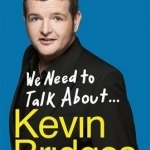
We Need to Talk About ... Kevin Bridges
Book
This is the comic autobiography of 2014. A comedian's autobiography? I wonder if he's ever used...
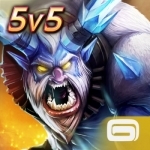
Heroes of Order & Chaos - Multiplayer Online Game
Games and Entertainment
App
THE ULTIMATE MOBA FOR MOBILE HAS JUST BEEN REVAMPED, REIMAGINED AND REINVIGORATED! Team up and...

The Telegraph – Live News, Sport & Business
News and Magazines & Newspapers
App
Get fast, free access to The Telegraph’s award-winning journalism - accessible even when you're...

Africa: Live
Travel and Reference
App
WINNER: Best Travel App in Africa (competition sponsored by Visa and South African Tourism). ...
Gareth von Kallenbach (980 KP) rated Mid90s (2018) in Movies
Jul 2, 2019
Sunny Suljic plays 13-year-old Stevie, a quiet and often confused boy looking to escape his bleak and abusive home life by connecting with a group of local skater kids. While Suljic absolutely steals the show with his superb acting, his (mostly no name) costars deserve massive kudos for this endeavor as well. Lucas Hedges (Manchester by the Sea, Three Billboards outside of Ebbing Missouri) plays Stevie’s abusive older brother Ian. Though he is quickly established in the opening shot as the antagonist, his character arc throughout the film is one of the greatest and you find yourself soon empathetic to his plight nearly as much as Stevie’s. The skater gang is comprised of Ray (Na-kel Smith), Fuckshit (Olan Prenatt), 4th Grade (Ryder McLaughlin) and Ruben (Gio Galicia). These four seem apathetically content to take Stevie under their wing after he begins hanging out at their skate shop. During this time they expose Stevie to a world of drinking, smoking, drugs and sex as well as a complex set of personalities that Stevie struggles to understand but tries desperately to emulate. This reverence begins to lead him down a path that worry not only his mother and brother, but also occasionally members of his new social group. The actors playing his newfound friends all bring a beautiful authenticity to their roles. They certainly aren’t playing “themselves”, but their personalities don’t feel concocted or forced.
The original score for the film was done by Trent Reznor and Atticus Ross as well as a selection of 1990s Hip Hop. And while the original music by Reznor and Ross accents the film perfectly, the 90s throwback songs struggle to do more than remind the viewer of the period and provide the sporadic nostalgia kick. In fact, most of the 90s nostalgia does little to add to the film. Thus, while the opportunity was there to give us a solid examination and social commentary on 1990s culture, Hill seems to fall short of that concept and instead uses the references as a gimmick to tie in smaller plot points.
In addition to the music, there are a few other elements that add to the hipster vintage nature of the film. It was shot entirely on 16mm and is presented in square 1:1 ratio. While this is certainly an unusual choice as more movies are shifted to wide screen formats and square televisions are no longer produced, it pushes the film closer towards the verité genre that is necessary to keep it within the indie style guide.
Mid 90s, along with Eighth Grade have positioned A24 studios in a fantastic place. They’ve demonstrated their willingness to get behind first time writer/directors and the results have been impressive to say the least. If they can remain on this type of pace I could see how the Academy would take notice come awards season.
So despite his view that they are cliché, Jonah Hill has once again created a poignant and powerful coming-of-age movie and he’s managed to wrap it into just enough skateboarding reality to give us the love letter he was hoping to produce. The film is not without its faults, but it’s not one you should miss.
Gareth von Kallenbach (980 KP) rated Death Race (2008) in Movies
Aug 14, 2019
The film became a cult hit, and paved the way for films such as “Rollerball”, “Arena”, and countless other films that featured bloodlust sporting events for the masses a la Rome in the age of gladiators at the coliseum. Thirty-three years later, audiences are given the new and upgraded “Death Race” which benefits from a bigger budget with more carnage than the original film that inspired it ever dreamed of.
The film opens with an eerie warning of today’s troubled economic times, stating that the U.S.
economy collapses in 2012 and record unemployment and crime sweep the nation. With prisons overcrowded, corporations run correctional facilities for a profit and soon offer caged matches between inmates for the viewing pleasure of the nation. At first the matches are a huge success but soon lose their appeal to an audience that is eager for even bloodier sport.
In an effort to keep the cash flowing, the Death Race is created which pits convicts against one another in a brutal mix of speed, firepower, and death which in a few years surpasses even the Super Bowl as the most watched sporting event in the world.
Jason Statham stars as Jensen Ames, a former race driver who is framed for the murder of his wife and faces the prospect of life in prison while his daughter is raised by strangers. With the Death Race losing some if its audience, its creator, and warden of the prison, Hennessey (Joan Allen), offers Jensen a solution to both of their problems. If Jensen will pose as the masked Frankenstein for the race and win, he will be granted his freedom. It is learned that the real Frankenstein has finally succumbed to the numerous injuries he has incurred racing, and rather than risk losing his vast legions of fans who drive the ratings, it is easier to replace him than lose him, especially since recent races without Frankenstein had not garnered the same ratings as his past races.
It is explained that should a driver win five death races, they will be set free. Since Frankenstein has won four races, all Jensen has to do is win the race and stay alive to earn his freedom. Jensen is faced with an menacing list of adversaries including the deadly Machine Gun Joe (Tyrese Gibson), who is the biggest threat to Jensen with an absolute hatred for Frankenstein. Gun Joe is a cold-blooded killer who wants nothing more than two more race wins to earn his freedom and will stop at nothing to get it.
Jensen is assisted by the talented Coach (Ian McShane), who dispenses wisdom while overseeing the crew that outfits Jensen’s suped up, armor-plated, and very heavily armed racer. Assigned to ride with Jensen as his Navigator is Case (Natalie Martinez), a female prisoner who, like many of her fellow navigators, sees the race as a chance to earn their freedom and other special perks which makes risking their lives a worthwhile endeavor.
As the race unfolds in three stages, Jensen is tasked with not only surviving the threats Machine Gun Joe and the other racers aim his way, but surviving the twisted scheme that has him in its grasp.
The action of the film is fast, brutal, and unforgiving and is easily the highlight of the film. Sadly there are plenty of scenes with stiff and uninspired characters, numerous plot holes and leaps of logic, and clichés that bog the film down.
Statham is his usual soft talking hard man, a character he has made a career out of playing in such films as the “Crank” and the “Transporter” series. But unlike those films, he is not given much material to work with here. Statham has done solid work in the past but Jensen is a paper thin character who never fully given a chance to develop nor be embraced by the audience.
The same is true for the rest of the cast, a talented ensemble left to languish in want of better material. The film is directed by Paul W.S. Anderson of the “Resident Evil” series who once again shows that he has an eye for action, but still has issues with pacing and unsympathetic characters. This is a shame as the premise of the film is solid, but unlike the original, lacks the social and political commentary needed to balance the carnage and mayhem.
With a little more time in shop and tinkering, this could have been a solid action film, instead it stalls at the starting line badly in need of a tune up.
Goddess in the Stacks (553 KP) rated Son of a Witch in Books
Apr 16, 2018
Wicked is the story of Elphaba, Oz's Wicked Witch of the West. Her story tells us about her birth, her childhood, her school years, and how she eventually came to be the Wicked Witch of the West. Throughout the course of the book we meet Glinda, the Good Witch (and Elphaba's college roommate), the Wicked Witch's flying monkeys, and the Wizard of Oz. The Wicked Witch, unsurprisingly, is not as evil as she's painted to be. Her sister, though...I might not call her wicked, but dictatorial? Yes. Wicked also introduces Liir, Elphaba's son. His story is the sequel, Son of a Witch.
In Son of a Witch, we watch Liir try to decide who he is and what he wants to do with his life. Is he really Elphaba's son? What does that mean for his future? Should he take up her mantle and her responsibilities? So many people seem to think it's his duty to do so, but he's not Elphaba. She never confided her dreams and goals to him, so he doesn't even really know what those duties are, much less if he wants to take them up. Son of a Witch is really the story of an identity crisis, but it's an identity crisis with the added pressure of entire tribes and races of peoples looking to Liir for help, or guidance, or simply answers that he does not have.
I very much enjoyed both books, and I'm excited to find out there are two more in the series. I definitely had some unanswered questions at the end of Son of a Witch, and was disappointed when I thought that was the end. I also plan to look up the author's other, similar books - Confessions of an Ugly Stepsister (Cinderella), Mirror Mirror (Snow White), and many others not based on fairy tales. Or recognizable fairy tales, anyway.
Reading these two books has also made me want to re-read the Oz series - I read most of them years ago in middle school, but I think I may try to grab them from the library again. Oz is such an interesting world, and re-reading them after reading The Wicked Years might shine a whole new light on them.
You can find all my reviews at http://goddessinthestacks.wordpress.com
Goddess in the Stacks (553 KP) rated Wicked in Books
Apr 16, 2018
Wicked is the story of Elphaba, Oz's Wicked Witch of the West. Her story tells us about her birth, her childhood, her school years, and how she eventually came to be the Wicked Witch of the West. Throughout the course of the book we meet Glinda, the Good Witch (and Elphaba's college roommate), the Wicked Witch's flying monkeys, and the Wizard of Oz. The Wicked Witch, unsurprisingly, is not as evil as she's painted to be. Her sister, though...I might not call her wicked, but dictatorial? Yes. Wicked also introduces Liir, Elphaba's son. His story is the sequel, Son of a Witch.
In Son of a Witch, we watch Liir try to decide who he is and what he wants to do with his life. Is he really Elphaba's son? What does that mean for his future? Should he take up her mantle and her responsibilities? So many people seem to think it's his duty to do so, but he's not Elphaba. She never confided her dreams and goals to him, so he doesn't even really know what those duties are, much less if he wants to take them up. Son of a Witch is really the story of an identity crisis, but it's an identity crisis with the added pressure of entire tribes and races of peoples looking to Liir for help, or guidance, or simply answers that he does not have.
I very much enjoyed both books, and I'm excited to find out there are two more in the series. I definitely had some unanswered questions at the end of Son of a Witch, and was disappointed when I thought that was the end. I also plan to look up the author's other, similar books - Confessions of an Ugly Stepsister (Cinderella), Mirror Mirror (Snow White), and many others not based on fairy tales. Or recognizable fairy tales, anyway.
Reading these two books has also made me want to re-read the Oz series - I read most of them years ago in middle school, but I think I may try to grab them from the library again. Oz is such an interesting world, and re-reading them after reading The Wicked Years might shine a whole new light on them.
You can find all my reviews at http://goddessinthestacks.wordpress.com
Kristy H (1252 KP) rated The Favorite Sister in Books
Mar 10, 2019
I have some conflicted and confused emotions about this book. It took me over a week to read, which is forever in my world (I finished three other books in the meantime, to put it in perspective). You know how your Kindle tells you the percentage left to read? I swear that number never changed, it felt like such slow going, and I considered giving up several times. I really only kept reading because of a big reveal that happened on page one (literally) and then the rest of the book spends its time going back in time explaining what happened. I was mildly curious enough to find out what went down. The novel keeps you wondering just enough even if you don't like the characters.
Because, wow, these characters are really despicable. I can get past it in most books, and I thought maybe I'd like Brett for a while, but this self-centered group really took the cake. I am not a reality TV person, especially Real Housewives, so maybe that's part of why this one wasn't for me? I found the in-fighting, petty catfights, and personal drama to just be over-the-top. It's sad, because at times, I found a real wit and depth to the book, but for the most part it just dragged on. And on.
And again, some of this just may be because I'm not a reality TV gal. I really like Knoll's writing, I just couldn't get a handle on the tone. Funny? Serious? Both? What was it aiming for? Did it all just go over my head? I caught that it was trying for some really meaningful social commentary about feminism, weight, race, and so much more, but then it would get lost in two women fighting over platform heels.
There were some good twists at the end, but overall, this one fell flat for me, including the final ending. I felt like I slogged through it, and I just didn't enjoy the characters. Perhaps I missed the overall point or meaning. Many others have enjoyed it, so you may find it's more suited for you than it was for me.
I received a copy of this novel from the publisher and Edelweiss in return for an unbiased review (thank you!).
